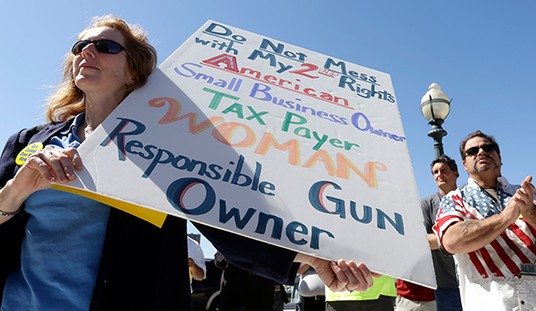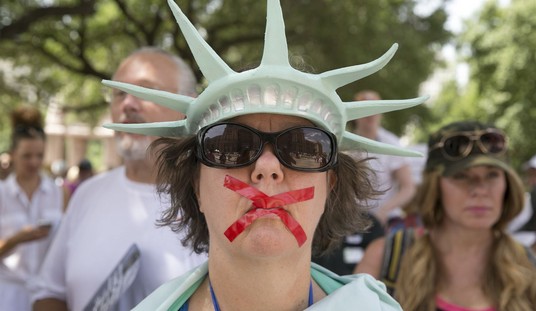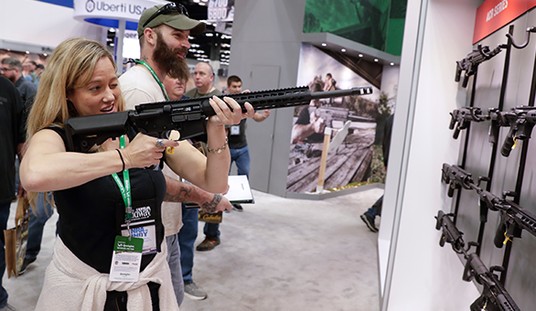There have been dozens of legal briefs filed in support of both the plaintiffs and defendants in the pending challenge to New York’s carry laws that will be heard by the Supreme Court next month, but I think one of the most important (at least in terms of the argument made) is the amici brief filed by several law professors with experience and detailed knowledge about the Second Amendment and the history of the right to bear arms. The brief was co-authored by Dave Kopel of the Independence Institute along with the Firearms Policy Foundation’s Joseph Greenlee and University of Wyoming law professor George Mocsary, but was co-signed by many other 2A legal scholars like Nicholas Johnson, Randy Barnett, Glenn Reynolds, and Eugene Volokh (to name just a few).
Over at Reason, Kopel lays out the professors’ argument; namely that the right to bear arms has historically been understood to protect the “carrying” of firearms, and that right is co-equal to the right to keep arms also protected by the language of the Second Amendment. In painstaking detail, Kopel and his co-authors delve deep into the legal history surrounding the right to bear arms, which in England predates the founding of the United States by 400 years or so. But the brief also takes pains to note that the right to bear arms protected by English common law was merely the starting point for our own Founding Fathers when it came to safeguarding the right of the people to keep and bear arms.
Whatever the English Bill of Rights protected, it was not good enough for Americans. James Madison’s notes for his speech introducing the Bill of Rights in Congress show that he regarded much of the English Bill of Rights as deficient, including the Protestants-only provision of the right to arms. St. George Tucker, William Rawle (author of an influential 1825 treatise on American constitutional law), and Joseph Story all denounced the English right to arms as feeble and as far inferior to the Second Amendment.
During the colonial and founding period, no colony or state forbade carrying arms. Only a few addressed the issue. Massachusetts in 1692 outlawed going “Armed Offensively.” Likewise, New Hampshire in 1699 ordered justices of the peace to arrest “affrayers, rioters, disturbers or breakers of the peace, or any other who shall go armed offensively.” Being armed “offensively” is the opposite of peaceable defensive carry.
After the suppression of Bacon’s Rebellion in 1676, a Virginia statute noted that the previous legislature had enacted a law that “liberty is granted to all persons to carry their arms wheresoever they go.” However, the new legislature prohibited unauthorized armed assemblies of five or more men. Thus, individuals or small groups had the unfettered right to carry.
The one colony that did restrict peaceable personal carry was East Jersey, which was was a separate colony from 1674 to 1702, and was adjacent to New York City. In 1686, East Jersey outlawed concealed carry of “any Pocket Pistol” (a pistol small enough to fit in a pocket). Further, any “Planter” was forbidden to “go Armed with Sword, Pistol, or Dagger.” A “planter” is “One of those who settled new and uncultivated territory.” Richard Lederer, American Colonial English 175 (1985). So East Jersey frontiersman could open carry long guns, but not handguns.
Whether the East Jersey carry law continued in force after the Jerseys were consolidated in 1712 is unclear. The New Jersey legislature did not seem to view statute of former East Jersey as having continuing force. When the legislature restricted concealed carry in 1905, it did so by enacting a licensing statute. Open carry of handguns and long guns was legal in New Jersey until 1966.
As the brief makes clear, while there were some limitations placed on the carrying of arms, particularly carrying arms for “offensive” purposes, there were no outright bans on the carrying of all firearms for all purposes. Contrast that with the carry laws in New York State. The open carrying of firearms is banned outright, while the carrying of a concealed firearm requires that a resident first obtain permission from a state authority, and in order to do must satisfy the subjective requirement of demonstrating a “justifiable need” to carry a gun in self-defense. It’s abundantly clear to me that the policy in New York lies far outside the history, text, and tradition of the Second Amendment by treating the right to bear arms as a privilege to be doled out by the state, rather than a right of the people that shall not be infringed.
Do yourself a favor and check out Kopel’s entire column when you have a few minutes. Not only is it a great history lesson on the right to keep and bear arms, but Kopel and his co-authors on the brief even managed to poke several holes in the arguments by those hoping to keep New York’s “may issue” carry permit laws on the books.









Join the conversation as a VIP Member